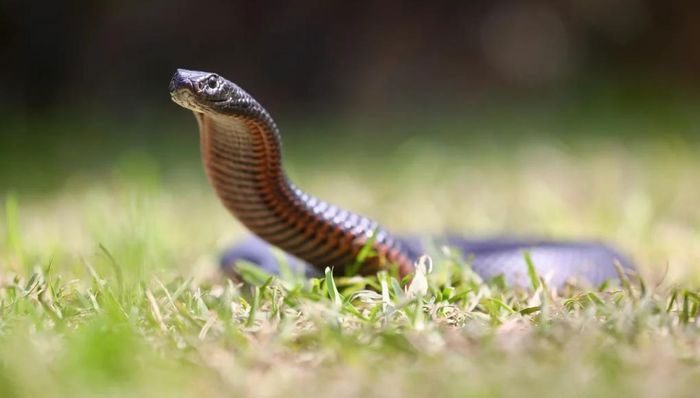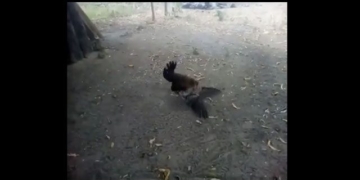Global warming is creating an ideal environment for snakes to thrive.
According to CNN, as the East Coast of Australia experiences one of its warmest winters on record, the snake breeding season seems to have arrived earlier than usual. The Australia Zoo has issued an emergency warning for people to be cautious of venomous snakes.
In a recent announcement, the Australia Zoo stated that rising temperatures combined with winter rainfall create the perfect conditions for venomous snakes to become more active.

As temperatures rise, snakes begin to become more active. (Image Source: Australia Zoo).
Typically, during the cold winter months, snakes tend to seek refuge to “hibernate.” They usually start becoming active again around September when temperatures begin to rise.
However, due to the current state of global warming, the heat is causing snakes to appear earlier than normal. Snake-catching units have also reported a significant increase in calls from the public—a rare phenomenon for this time of year.
“It’s important for all Australians to know that snakes do not seek to harm humans. Snakes bite when people attempt to catch or kill them, so if you do not do either of those, the chances are high that you will be fine!” reassured Billy Collett, CEO of the zoo.
Nevertheless, he urged everyone to learn how to respond to snake bites, especially since bites from venomous snakes can be fatal within just 30 minutes. These measures include keeping the victim calm, removing jewelry and watches, and bandaging the entire limb, not just the bite area. He also recommended that people avoid stacking firewood and other objects in their yards, as these can create ideal habitats for snakes.
Data from the Australian Bureau of Meteorology shows that last month was the fourth hottest July on record in New South Wales. Across Australia, average temperatures are also nearly 1.2 degrees Celsius higher than at this time in previous years.
In the United Kingdom—where this year has seen the hottest June on record—rising temperatures are also impacting the snake population, particularly pet snakes.
The animal welfare nonprofit, the Royal Society for the Prevention of Cruelty to Animals (RSPCA), reports that an increasing number of snakes are escaping from cages due to climate warming.





















































